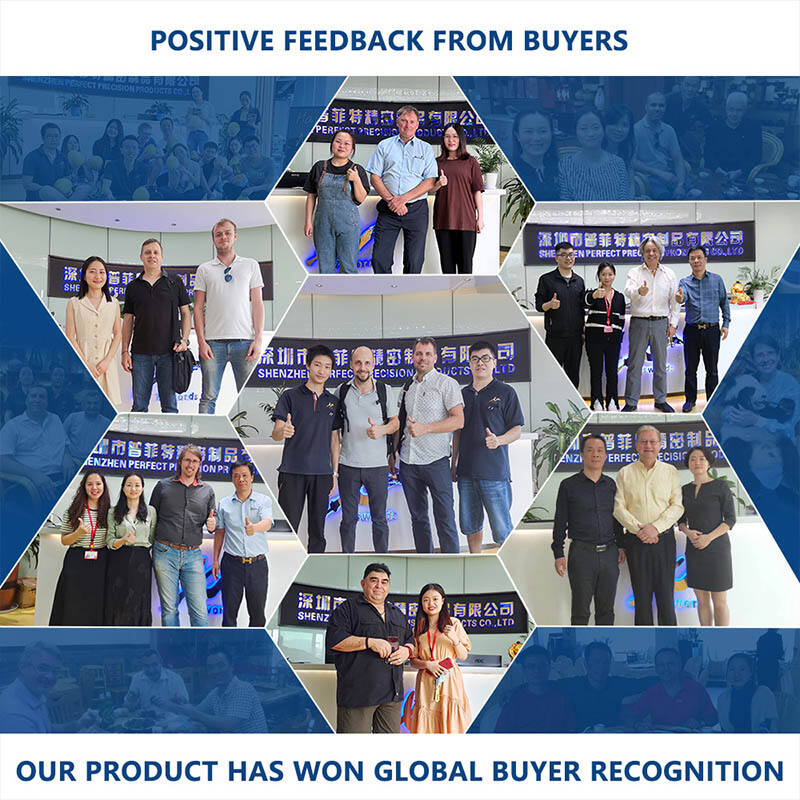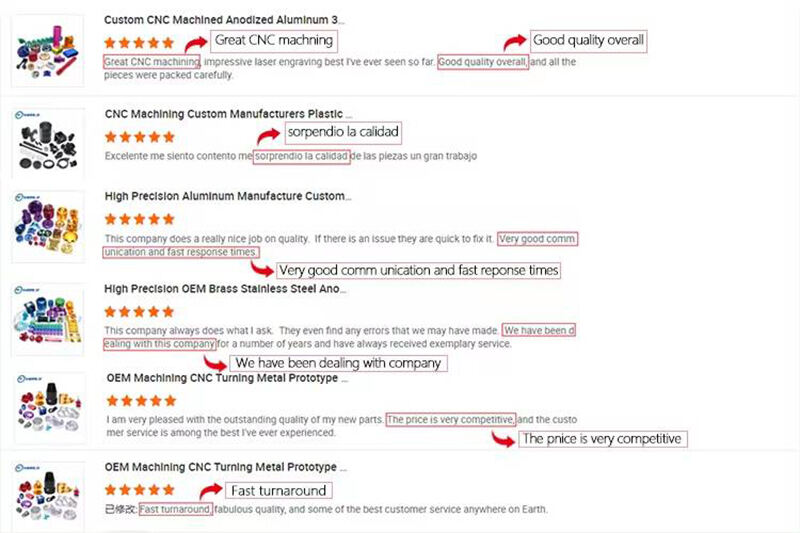Building 49, Fumin Industrial Park, Pinghu Village, Longgang District
Dúnadh Dé Domhnaigh
Cineál: Broaching, Druileáil, Eitseáil / Meaisíniú Ceimiceach, Meaisínithe Léasair, Muilleoireacht, Seirbhísí Meaisínithe Eile, Casadh, EDM Sreang, Fréamhshamhail Mhear
Micrea-mheaisniú nó Gan Meaisíniú Micrimhilseogra
Uimhir Mhúnla: Saincheaptha
Materiál: Comhlucht Tiarnaid
Rialú Cáilíochta: Ard-chaighdeán
MOQ: 1 ríomhaire
Am Seachadta: 7-15 Lá
OEM/ODM: OEM ODM Seirbhís Meaisínithe Muilleoireachta CNC
Ár Seirbhís: Meaisínithe Saincheaptha Seirbhísí CNC
Deimhniú: ISO9001:2015/ISO13485:2016
I dteideal eagracht aérspeiceálta atá ag fás go dtíobrach, tá an iarratas ar chomhponnta a cheanglaíonn nua-scolb le neamhspréachta agus le feabhsúlacht uafásach níos airde ná riamh. Is iad páirteanna machaíochta tioncharach aérspeiceálta de líon titaini é na hidir a dhéanfaidh an-mhéid den iarratas seo a phlé. Tá na comhponnta snaofraightheacha seo bunúsacha i bhfeidhmchláir aérspeiceálta criticiúla, áit nach mbaineann seans, feabhsú, agus laghdú cuil le chéile. San alt seo, bronnfaimid léargas ar na hathruithe, na feidhmeanna, agus na buntáistí a thugann páirteanna machaíochta tioncharach aérspeiceálta de líon titaini, agus cén fáth a bhfuil siad rogha láithreach don ghnáth-íoctha is tréan san eagracht aérspeiceálta.

Is é an méid a dtéann i gcás CNC turning próiseas máistreachta, ar dtugtar roth láithreach ríomhaire-ghníomhach le cúlra stainléir ag imeartha agus tá scileog críochnúchán ag fiosrú air chun go mbeidh sé ag feabhsú le riachtanais díbirt speisialta. Tá an phróiseas seo cinnte go hiomlán, ag ligean do dhaoine gnó pearsa a chruthú lena n-athruithe go soiléiri agus gairidiúla atá deacair a bhaint amach le meastóirí lámhscríofa traidisiúnta. Is iad na cuntais ard mhéaraithe stainléir CNC a chuirtear ar fáil comhpháirteacha atá bunaithe ar chúlra stainléir a líonadh mar a rinneadh orthu trí phróiseas brionglóideach seo.
Píosaí cinneadh uilíochta airgeadeach a bheith fé chomhlacht le comhpháirteacha tiotalaíocht, atá cruthaithe ón gclann tiotalaíocht ag baint úsáid as teicníocaí machaí CNC (Ríomhaire Úsáideach Námh) nuálacha. Tá na n-alaimh seo, atá príomhchompónán de tiotal, almainn, bhánadáin agus eileamanta eile acu, áithnithe mar gheall ar a gcóras éadromas faoi fheabhsú, ar an tuarascáil corrscurdaithe agus ar an imtharraingt teorainn-temprách. Géarchonn CNC go bhfuil na comhpháirteacha seo cruthaithe leis an leibhéal is airde de chomhionannacht agus le tollaimh giorra, ag déanamh acu idealta do na neartmhartha agus na hábhair cómhla den seolaireacht iomlán.
Tá tiotalaíocht in ann tabhairt faoi láthair mar atá ar cheann de na hoibridí is tábhachtacha a bheadh ag feabhsú sa chruthú seolaireachta mar gheall ar a ngnéithe bríomhar:
· Néalltacht agus Éadrom: Tá neamhspleáchta níos láidre ná go leor meascán eile ag allaimh tiata while bíonn siad níos éadrom. Is mór an ról don ghné seo de néalltacht chun éagsúlacht in aghaidh cuirp, ar ndóigh, mar gheall ar gach uncáil a bhaineann leis. Is féidir leis an méid éadrom a bheith níos fearr i gcás úsáide cheadaithe, níos fearr i gcás taithí, agus níos mó i gcás comhlach ómós.
· Díochlaonadh: Tiata léirithe ar fad a dhéanann cúlra cosúil le hoxaid ar a fhaictheoir, ag cinntiú nach dtiocfaidh díochlaonadh as réimsí éagsúla, lena n-áirítear uisce, sórt agus cheimiceálacha crua. Tá an t-ábhar seo ábalta a thabhairt faoi staid éagsúla, lena n-áirítear seachas aeráide, áit a bhfuil na páirteanna suimiúla faoi shúileacht aimsire, fíocha íseal agus timpeallachtaí oige.
· Díomá Théamha: Bíonn neamhspleáchta agus iontráil struchtúrtha ag allaimh tiata ag leibhéal téamh níos airde, ag cinntiú go bhfuil siad ceart chun úsáid i gcás gníomhanna ard-stress mar phríomh-bhaincheanna agus cluaisíní turbin, atá faoi sheasmhacht théamh crua le linn an eitilt.
· Tabharthas fadhbhí agus fadhbheatha: Tá tiotalaigh tite agus go hiomlán díomaithe le cúram agus le brón, eadhon gur beidh beartanna cruthaithe as na tiotalaigh seo ina n-éilimh bhreise, ag laghdú ar phríomha chostais cúram agus ag cinntiú deisbholtas i measc mointeoirí speisialta éagóir.
1. Innealtóireacht Phrionsabal don Fheidhm Chomhphléithe
Tugann comhphléithi aerospais cásacha agus coimpléithe a bheith ag teastáil as prionsabal ard mhéid chun feidhm ceart a sholáthar. Ligíonn machanachta CNC do dhaoine innealtóireachta comhphléithe a chruthú le tollaimh glan (chomh bog sin is 0.0001 inch), cinntiú go gcuirtear gach comhphlé faoi láthair agus go dtiocfaidh sé go soiléir faoi réigiún aerospais. Is féidir an leibhéal seo prionsabail a úsáid don fhadhbhín tábhachtach mar phléithe inneall, fásaithe, agus bracsaí.
2. Saincheapadh don Bhéil Speisialta Aerospais
Tá riachtanais éagsúla ag gach tionscadal aerospasial, agus tarlaitheann roghanna fostaíochta a thugtar ar chuidithe tiotalaigh preicsion aerospasial leis na n-éilimh sin a phlé. Cúpla mar atá tú ag dearadh ceadún do mhinicín eitleán, d'fhrith-leasa speáil nó do shistéimeacha saitélite, is féidir le tiotalaigh a bheith in eagar go cúramach i bhfoirmí, méid agus géarcheangaltaí an-tacaíoch don pháirt seo. Déantar cinntiú faoi dhearadh fostaíoch chun go mbeidh do pháirteanna i gcásamhail is fearr agus is fadhbraithe i rith a gcuid oibre.
3. Ioncam-Sonrachtaí Tógála don Fhoréigean Fada
Cé nach mbíonn costas tiotalaigh níos airde ná meála eile, is cuma níos mó a thugann siad don fhoréigean fada. Le linn a gcumhacht, a dícheallmhaireacht faoi chruthú agus a n-éadromacht, bíonn costas cáilithe níos ísle, níos lú deichreachaíochtaí agus níos lú éagóchtaí san am fada. Mar aon leis sin, cuireann feabhsú CNC tógála bunúsach, éifeachtach, agus níos luaithe, ag breathnú ar chóstaí obair agus gnó i dtosach, go háirithe don chuid mhór páirteanna.
4. Sláinte agus Díbirt
I gceanglachas, is í an sláinte is tábhachtach. Tugann comhpháirteálaithe títeán, as ucht a n-éileamh féintheideal agus a díbirt, leibhéal sláinte agus feidhm a bhfuil ró-thábhachtach don chomhpháirtíocht mar phríomhpháirtí i gcás na gcrois léim, na cladóga tuirbín agus na struchtúir airfream. Trí úsáid a dhéanamh de pháirteálaithe títeán cuibhreantaithe, glactar go bhfuil gach comhpháirt in ann dul tríd na codanna is ngineálta agus feidhm a dhéanamh gan fheabhsú, ag minicíocht risic éagsúla agus am caite.
Úsáidtear comhpháirteálaithe títeán airgeadai ceanglachais prionsail saor i bhfeabhsuithe iomchapa, ar nós:
· Comhpháirtí Mhéig: Úsáidtear comhpháirteálaithe títeán go coitianta i lánúin pháirteálaithe a dtosaíonn le teochtaí ard agus brú, mar shampla cladóga tuirbín, discí comhradaithe, meitheal mhéig, agus cladaí fan. Is críticiúla iad na comhpháirt seo chun cinntiú ar an gfeidhm, an tuaslag agus an fiontra den mhéig.
· Páirte Struchtúrtha: Tá páirteanna cosúil le spars siúlach, fréamhacha fuselage, bulkheads agus comhaid rialaithe acuinn go minic bunaithe ar allaimh tiotainium mar dhea gur ann dóibh cóimhlint éadrom chun cuí. Caithfidh na componánnta seo saineolas ard, brógaíochtaí agus strainte a dhéanamh tar éis agus cuímniú ar an méid éadrach nua-álainn den aerphlane.
· Géar Sólas: Úsáidtear allaimh tiotainium i bhfonnta géar sólas cosúil le struts, axles agus shock absorbers. Caithfidh na páirteanna seo fórsaí uafásacha a dhéanamh tar éis agus éadracht éadrom a sholáthar agus dea-throidchearnaithe coirp.
· Scroilte agus Córais Scraithe: Is mofhaisnéiseach na scroilte tiotainium, nótaí, screadaí, washers agus eile scraithe chun cinntiú go bhfuil gach páirt scailte go láidir ar an aerplane nó ar an eora-scóil. Tógadh na scroilte seo chun strainte ard agus brógaíochtaí a dhéanamh tar éis agus coirp a throidchearnú.
· Comhpháirteacha Speisialta: Tá ról briondúil againn agus an tiotalaíocht speisialta ag tacú le cúrsaí plé leasaithe tríd chur i bhfeidhm comhpháirteacha éadrom, láidre agus fíor don spás craobh, na córais satélaithe agus na n-inneall roith.
· Bracsaí Stiúrtha agus Tacaí Struchtúrtha: Tá bracsaí, córais ar aghaidh agus tacaí struchtúrtha atá déanta as mheon-tiotailaícthe ag cur lena gcumas láidreach agus cruthaitheachta chun na comhpháirteacha cheannais a chosaint gan cuiscint uisce breise ar an gcríochchóras iomlán.
Tá comhpháirteacha príosúnasa meon-tiotailaícthe speisialta mar phrionsabal na heolaíochta speisialta lárnach inniu, ag cur lena gcumas, a fhíoracht agus a díbirt a thugtar ar aerpláin, craobh speisialta agus na córais ceangailte. Tríd a n-ainmniú meicnicíochta iontacha, a chosaint uasleasaithe agus a n-athrúcháin, tá comhpháirteacha meon-tiotailaícthe speisialta inár gcuid is fearr chun cinntiú ar saothar, eisiocaíocht agus comhlíonadh na gcórais speisialta.



Q:Cén fhad is fíor na hispínéiseacha phrionsabal Tiotalaigh don Spás?
A: Tá na hispínéiseacha prionsabal tiotalaigh don spás a chruthaítear le heagranacht ard, go minic go héifeachtach mar 0.0001 inch (0.0025 mm). Gheobhaidh an phróiseas prionsabal éifeachtach go bhfuil na n-éagsúlacht is córasaí ag cruthú chun cúram a thabhairt don rudaí is fiú sa spás a fheabhsú. Is tábhachtach é seo leibhéal eagnach sin chun cinntiú ar shlánú agus imeartha na gcóras spás is tábhachtaí.
Q:Cén chaoi a bheidh na hispínéiseacha Tiotalaigh don Spás á thástáil don chiall?
A: Bíonn na hispínéiseacha tiotalaigh don spás á thástáil go hiomlán trí chiallriacht agus tástáil, lena n-áirítear:
· Seiceáil Díomaithe: Ag úsáid mhachnaimh measúnach co-ordúnaithe (CMM) agus uirlisí eolais eile chun cinntiú go ndéanann na páirteanna na tollamhacha greamaithe a chur i bhfeidhm.
· Tástáil Mhaireadail: Cinntiú ar an gcóras de chumhacht agus na n-iarmhínithe meicneolaíocha dleath nítin a chur i bhfeidhm chun cinntiú go dtugaíonn siad do scileanna spás.
· Tástáil Gan Críochnú (NDT): Meathódai mar X-reid, fuaime uillte agus tástáil ngearán díobhail a úsáidtear chun aon chúlra nó difeactaí bunaidh a aimsiú gan na páirteanna a mharú.
· Tástáil Lámhshuim: Cinntiú go léir nach gcuirfidh na páirteanna faoi loighc leictreach agus strainte san am seo gan teip.
C: Cad is féidir le linn an-titiniú a úsáid sa spás?
F: Is é na hábhair is féidir le linn an-titiniú a úsáid don spás:
· Grád 5 (Ti-6Al-4V): An alaismheasán títe is úsáideach, a thugann comhthéacs maith idir láidreacht, díochlaíocht corrscuradh agus prapairt éadrom.
· Grád 23 (Ti-6Al-4V ELI): Leagan níos soilse de Grád 5, a thugann brabús níos fearr ar pháirt den chruthú agus a úsáidtear i gcómpoindí spás criticiúla.
· Grád 9 (Ti-3Al-2.5V): Tá obair bheo den chéad scoth a thabhairt agus úsáidtear de ghnáth san fhrám airgeadach agus sraith struchtúr na n-aerphlane.
· Míreanna Beta: Is léir nach bhfuil an éileamh orthu, is féidir le míreanna beta titan i gcásanna a laghdú agus a lódadh go soiléiriúil.
C: Cad É an Am Faoi Theacht Typicál don Phríomh-bhliain Tiarnasaithe?
F: Féadfadh am faoi theacht do phrionsabal machnaimh tiarnasaithe tíontanaigh a bheith ag athrú ar bun cruth an phléid, méid an ordú, agus ar ghaolmhéin an tograí. Généireachtais, féadfadh amanna faoi theacht a bheith idir dhá nó sé seachtain, gan cinntiú ar na factóirí seo. Le haghaidh tionscnaimh tábhachtacha, bíonn seirbhísí spriocchra á sholáthar ag miontoigrí chun scéalta cainte a phlé.
C: An féidir Bátáil Beaga de Phléid Tiarnasaithe Tíontanaigh?
A: Tá, is féidir le go leor de na n-ionsaí a lán beag den chineál tiomáinéise a chruthú. Is éifeachtach go mór CNC machining agus áitmhínigh don phróiseas tuairimneach agus tuairimneach uile. Cén chaoi go bhfuil cúpla páirt agat do phróitipeach nó ordú níos mó don pháirc, is féidir le hingearradh spriocach a chur i gcás ar fheabhsuithe.
Q: Cad a Dhéanann Páirteanna Tiomáinéise Aerospaes Cost-Effective?
A: Cionn go bhfuil allainn tiomáinéise níos táscraí ná mátharacha eile faoi láthair, is cost-effective iad san fhad seo amach as uaireanta anois mar gheall ar a gcumhacht, a dianfhéiniúchán coirpóige agus a n-imeartha i gcásanna bródúla. Mar gheall ar a n-athrú saol seasta, a n-éileamh ar fheabhsuithe thaispeántais agus a n-imeartha gan téarmú i gcásanna criticiúla aerospaes, is féidir leis na sábháilts annseo amach a bheith tábhachtach.
Copyright © Shenzhen Perfect Precision Products Co., Ltd. All Rights Reserved — Póilís Príobháideachta—Blag